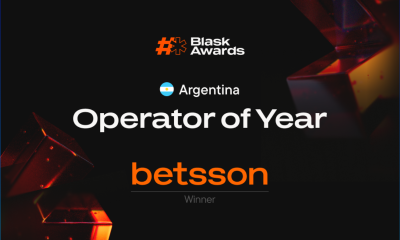Latest News
The Pinball and Modern Art Museum “Dino Merluzzi” A SPACE WHERE CULTURE, EDUCATION AND ENTERTAINMENT MEET
A space where culture, education and entertainment meet. All of this is enclosed in the “Dino Merluzzi” Pinball and Modern Art Museum, which celebrates its debut on Saturday, February, the 18th, in an official ceremony crowned by the patronage of the Ministry of Culture and the Umbria Region. The Museum is dedicated Dino Merluzzi, one of the first Italians collector of vintage gaming machines, nurturing the dream of being able to put them in a museum one day. Today that dream is being realized by the Ifpa Italia Association, in cooperation with the Municipality of Terni, the Marmore turist office and the ARCI of Terni, which thanks to the contribution of the Fondazione Carit, has managed to make the Pinball and modern ant museum real, dedicated to the passed away collector from Terni, in the spaces of the former elementary school of Marmore, in Via Montesi 59.
Today, the Museum is a unique place in Italy and aims to perform various functions, in the cultural, educational and recreational fields. Promising to obtain a role of attraction at national and international level, since it is in an already tourist context such as that of the Marmore Falls, going to be one more reason to go to this wonderful place, contributing to the further enhancement of the territory.
From a cultural point of view, it is a real museum of modern art, able to offer a series of pinball machines from different eras: from the very first examples of the 1950s to the current ones of our times, covering all the different eras that have occured (60s and 70s electo-mechanical ones, 80s and 90s electronic ones, modern, 2000s), in a thematic itinerary in which set the technological progress that has taken place over the last seventy years, describing in detail the change of the customs and traditions of society during the same period, described through the settings of pinball machines and other material of the time proposed together with the gaming machines (posters, window decals, records, books, vintage juke boxes and various vintage material). In addition to offering old movies on the history of the pinball machine.
From an educational point of view, the Museum offers a permanent location that aims to become a point of reference for schools and institutes in the area (and beyond), for a real and concrete approach to understanding science, technology, engineering and mathematics. Creating a “EduFun” program that would provide an exciting opportunity for teachers, students and various stakeholders to look at the inner operation of real, working pinball machines and learn how thousands of files and of electronic and mechanical parts work together to create complex electromechanical systems.
From a recreational and social point of view, the Museum offers a permanent location for organizing entertainment events, which perfectly fit with the tourist destination of the area. Also hosting international pinball tournaments, through the permanent activity of Ifpa Italia. All this in order to exploit the unique power of the pinball machine, which is one of the few games capable of being used by both children and the elderly people, belonging to practically any era.
Over 25 amusement machines are inside the building, including pinball machines, juke boxes and various types of vintage games, together with other collector’s items, including rare ones. But the permanent collection will be continuously enriched and updated thanks to loans and donations. The Museum is a non-profit one and even the recreational activities do not require payment for the game to play, but can be freely tested by visitors. It is therefore an ideal location for families and for any type of user. The entrance is totally free, by reservation only. The facility is temporarily not open to the public.
THE ORGANIZATION OF THE MUSEUM
The museum is spread over a total area of over 260 square meters, located on the first floor of the building of the former Marmore elementary school. The structure consists of six different rooms, thematically organized.
The first is the “Electromechanical Room”, dedicated to these games, hosting pinball machines from the 60s and 70s and other vintage games (such as Rotamint and Rotomat and other automatic games).
The second, which represents the main room, is the “Electronic Room”. Here you can find over 15 games from the 70s to the 2000s, with some collector’s items.
The third is the “Projection and Conference Room”, where there is a multifunctional space used as a cinema and conference center, where movies, documentary or historical movies, presentations, debates and various activities are held.
In the “Arcade Space” there are some video games from the 80s and 90s, available to the visitors of the Museum.
The Museum is also equipped with a “Restoration Room”, located next to the Electromechanical Room, where repairs and maintenance of individual devices are carried out.
While in the “warehouse room” games and various materials are kept for future installations and updates of the permanent collection.
All the games shown in the Museum are fully working and can be evaluated in terms of their game dynamics. The venue does not pursue any profit: it is not a game room or a private club and does not require the payment of any ticket.
Powered by WPeMatico
betting terminals
Meridianbet Completes Fairbet Acquisition, Expanding Malta Retail Gaming Network Under Golden Matrix Group

Meridianbet, a leading global sports betting and gaming operator and a subsidiary of Golden Matrix Group Inc. (NASDAQ: GMGI), has completed the acquisition of Fairbet Ltd., a licensed retail gaming operator in Malta.
The transaction significantly expands Meridianbet’s physical retail footprint in one of Europe’s most tightly regulated gaming jurisdictions.
Fairbet operates under Malta Gaming Authority (MGA) license B2C/195/2011, and the acquisition grants Meridianbet 100% ownership of Fairbet’s retail operations across Malta and Gozo, the archipelago’s second-largest island. The deal expands Meridianbet’s presence beyond its existing locations and further consolidates its position within the Maltese retail gaming market.
As part of the transaction, nine additional retail locations will be integrated into the Meridianbet network, increasing the company’s total number of storefronts in Malta to 20. The enlarged retail estate is expected to operate more than 60 sports betting terminals and over 120 slot machines, significantly boosting Meridianbet’s land-based gaming capacity.
The companies’ previous technology partnership will now transition into full operational integration, with Meridianbet assuming complete operational control of Fairbet’s retail network. All locations will be rebranded under the Meridianbet name, ensuring unified technology, compliance, and customer experience across the portfolio.
Malta’s retail gaming sector is governed by one of the most restrictive regulatory frameworks in Europe, with only three licensed operators permitted to operate retail betting locations: Meridianbet, Izibet (the National Lottery operator), and Fairbet. With Fairbet now wholly owned by Meridianbet, the company effectively controls two of the three retail gaming licenses in the jurisdiction.
The Malta Gaming Authority (MGA) enforces strict licensing criteria, substantial capital requirements, and rigorous compliance standards that create significant barriers to market entry. These conditions limit competition and create long-term scarcity value for licensed operators that meet the regulatory threshold.
“Completing the acquisition of Fairbet strengthens our position in a market where regulatory barriers create inherent scarcity value,” said Zoran Milosevic, CEO of Meridianbet. “This transaction allows us to expand our retail infrastructure in Malta, while our technology now supports the majority of licensed retail gaming in the country. It reflects our disciplined M&A strategy, targeting high-barrier markets where limited licensing creates durable competitive advantages.”
The Fairbet acquisition aligns with Meridianbet’s broader growth strategy, which combines organic expansion with selective mergers and acquisitions in jurisdictions where regulation encourages consolidation. Malta has been a core operational hub for Meridianbet since 2008, with the company ranking among the country’s originally licensed gaming operators during the early development of the MGA framework.
Malta’s gaming industry benefits from a regulatory regime widely regarded as one of Europe’s most credible. The MGA’s oversight framework emphasizes investor protection, technical compliance, and financial stability, positioning Malta-licensed operators for trust and recognition across international markets.
Meridianbet’s expanded retail footprint across Malta and Gozo enhances its ability to serve both local customers and the island nation’s strong tourism sector. According to Malta’s National Statistics Office, tourist arrivals exceeded three million visitors in 2024, reinforcing the strategic value of a broad, well-positioned retail gaming network
The post Meridianbet Completes Fairbet Acquisition, Expanding Malta Retail Gaming Network Under Golden Matrix Group appeared first on Eastern European Gaming | Global iGaming & Tech Intelligence Hub.
Atlaslive
Atlaslive Reaches Final Shortlist for Best Live Platform Provider at SiGMA Eurasia 2026

Atlaslive, a provider of B2B iGaming platform technology, has earned a place on the shortlist for the BEST LIVE PLATFORM PROVIDER 2026 category at the SiGMA Eurasia Awards 2026.
The SiGMA Eurasia Awards spotlight excellence across the iGaming, affiliate, and online entertainment industries, honoring companies and solutions that drive innovation, sustainable growth, and measurable impact. The shortlist is announced as part of the SiGMA Eurasia Summit, taking place February 9–11, 2026, at Dubai Festival City in the United Arab Emirates.
“Platform performance is measured in milliseconds, uptime, and player trust. Being shortlisted in this category reflects the technical discipline and delivery standards our teams bring to operators every day.”
—Anastasiia Poltavets, CMO at Atlaslive
Partners, supporters, and members of the community can participate in the awards process through public voting by submitting their support using the following form:
https://share.hsforms.com/11aCinm5wS92yCSiAtXDGUg3s9oo
Taking place during summit week, the awards ceremonies create a key moment for industry professionals to connect, share insights, and celebrate innovation at one of the year’s most prominent gaming events.
About Atlaslive
Atlaslive delivers flexible, scalable iGaming platform technology to operators in regulated markets. Focused on performance, reliability, and continuous product development, Atlaslive enables sportsbook and casino operations aligned with diverse business models.
This document is provided to you for your information and discussion only. This document was based on public sources of information and was created by the Atlaslive team for marketing usage. It is not a solicitation or an offer to buy or sell any gambling-related product. Nothing in this document constitutes legal or business development advice. This document has been prepared from sources Atlaslive believes to be reliable, but we do not guarantee its accuracy or completeness and do not accept liability for any loss arising from its use. Atlaslive reserves the right to remedy any errors that may be present in this document.
About Atlaslive
Atlaslive is a B2B software development company that specializes in creating a multifunctional and automated platform to optimize the workflow of sports betting and casino operators. Key components of the Atlaslive Platform include Sportsbook, Casino, Risk Management and Anti-Fraud Tools, CRM, Bonus Engine, Business Analytics, Payment Systems, and Retail Module. Follow the company on LinkedIn to stay updated with the latest news in iGaming technology.
The post Atlaslive Reaches Final Shortlist for Best Live Platform Provider at SiGMA Eurasia 2026 appeared first on Eastern European Gaming | Global iGaming & Tech Intelligence Hub.
Atlaslive
Atlaslive Reaches Final Shortlist for Best Live Platform Provider at SiGMA Eurasia 2026

Atlaslive, a provider of B2B iGaming platform technology, has earned a place on the shortlist for the BEST LIVE PLATFORM PROVIDER 2026 category at the SiGMA Eurasia Awards 2026.
The SiGMA Eurasia Awards spotlight excellence across the iGaming, affiliate, and online entertainment industries, honoring companies and solutions that drive innovation, sustainable growth, and measurable impact. The shortlist is announced as part of the SiGMA Eurasia Summit, taking place February 9–11, 2026, at Dubai Festival City in the United Arab Emirates.
“Platform performance is measured in milliseconds, uptime, and player trust. Being shortlisted in this category reflects the technical discipline and delivery standards our teams bring to operators every day.”
—Anastasiia Poltavets, CMO at Atlaslive
Partners, supporters, and members of the community can participate in the awards process through public voting by submitting their support using the following form:
https://share.hsforms.com/11aCinm5wS92yCSiAtXDGUg3s9oo
Taking place during summit week, the awards ceremonies create a key moment for industry professionals to connect, share insights, and celebrate innovation at one of the year’s most prominent gaming events.
About Atlaslive
Atlaslive delivers flexible, scalable iGaming platform technology to operators in regulated markets. Focused on performance, reliability, and continuous product development, Atlaslive enables sportsbook and casino operations aligned with diverse business models.
This document is provided to you for your information and discussion only. This document was based on public sources of information and was created by the Atlaslive team for marketing usage. It is not a solicitation or an offer to buy or sell any gambling-related product. Nothing in this document constitutes legal or business development advice. This document has been prepared from sources Atlaslive believes to be reliable, but we do not guarantee its accuracy or completeness and do not accept liability for any loss arising from its use. Atlaslive reserves the right to remedy any errors that may be present in this document.
About Atlaslive
Atlaslive is a B2B software development company that specializes in creating a multifunctional and automated platform to optimize the workflow of sports betting and casino operators. Key components of the Atlaslive Platform include Sportsbook, Casino, Risk Management and Anti-Fraud Tools, CRM, Bonus Engine, Business Analytics, Payment Systems, and Retail Module. Follow the company on LinkedIn to stay updated with the latest news in iGaming technology.
The post Atlaslive Reaches Final Shortlist for Best Live Platform Provider at SiGMA Eurasia 2026 appeared first on Americas iGaming & Sports Betting News.
-

 BetPlay7 days ago
BetPlay7 days agoBlask Awards 2025: Betano, Caliente, BetPlay, Betsson and others define Latin America’s iGaming landscape
-

 Canada7 days ago
Canada7 days agoComeOn Launches New Marketing Campaign in Ontario
-

 iGaming7 days ago
iGaming7 days agoMajestic Claws Hold & Hit leaps into Spinomenal’s slots portfolio
-

 DEGEN Studios7 days ago
DEGEN Studios7 days agoDEGEN Studios brings Wild West chaos to the reels with Sunset Showdown
-

 Latest News7 days ago
Latest News7 days agoThrillTech partners with Nordplay Group to launch ThrillPots across Nordic-facing casino brands
-

 bingo halls6 days ago
bingo halls6 days agoBingo Halls and Casinos in Colombia Increased Their Contributions to Healthcare System by 9.3% in 2025
-

 Brightstar Lottery PLC6 days ago
Brightstar Lottery PLC6 days agoBrightstar Lottery Delivers Industry-Leading Sales Force Automation Solution to Ontario Lottery and Gaming Corporation
-

 Compliance Updates5 days ago
Compliance Updates5 days agoFinland Govt Looks at Whether Scratchcards can be Gifted Again



















